Disclaimer: I'm not a lawyer, and not able to offer legal advice. The legislation relating to IP (intellectual property), copyright, patents, trademarks and so on, is a complicated subject (and widely ignored and difficult to enforce on the web). So you absolutely shouldn't regard anything I say here as authoritative advice, but it may give you some ideas as to where to go for further information. I certainly hope that those who've never really thought about it will realize that on social media maybe we aren't always as respectful of the work of others as we should be.
Introduction
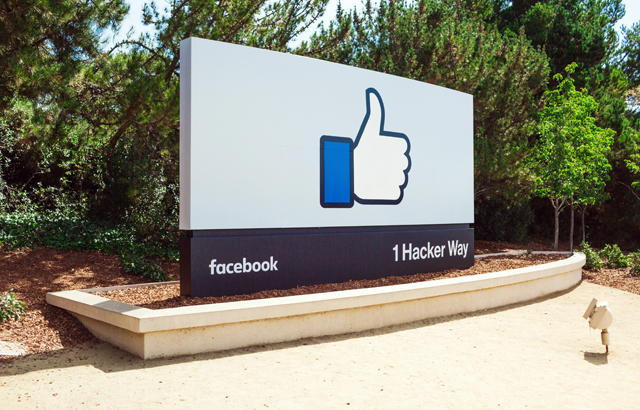
Recently I saw an enquiry from someone who wanted to repost an interesting article in a Facebook page but was worried about the legal implications. Here's a summary of the main issues as I understand them. As an author, editor and researcher, it's a subject that both interests and worries me: not only in terms of asserting my own rights to the material I create, but also of avoiding infringement of the rights of others.
In today's interconnected world, most of us are to some extent authors and publishers, and the apparent transience of material that appears briefly on a blog or on Facebook and then fades from memory is actually an illusion. Anything that makes it to the internet, whether it's a web site, a photograph or sound file, or a one-line email, takes on a life of its own. Even when the originator deletes it, the chances are that there's a copy of it somewhere out there in the cloud. In principle, someone still owns it – unless it meets one of the conditions I'll discuss below – but that doesn't mean its ownership is known.
I see a huge quantity of material that's almost certainly copyrighted reproduced on social media (including a fair amount of my own material which certainly hasn't been released into the public domain). I think we can probably assume that most of the people who post such material on Facebook or YouTube don't seek out the copyright holder and ask their permission, even if it's feasible to do so. Mostly, of course, they mean no harm or offence and don't necessarily do any significant damage. In some cases, the owner of the work in question might actually benefit from it (or some portion of it) being more accessible, but in other cases the creator or owner may be deprived of legitimate income, as well as the right to decide what use is made of the content that they own.
Fortunately, exposing copyrighted material on Facebook doesn't necessarily have much impact on the copyright owner's income, even though the site has the potential to amplify a single post so that it might spread virally to millions of account holders. The risk of being targeted for legal action by a copyright holder is, of course, increased when a copyright infringement does spread virally – after all, many infringements probably never come to the copyright holder's notice – and does have a negative impact on the copyright owner's income. But that doesn't mean it's OK to infringe copyright even if there is no appreciable loss of income, and the copyright owner has a perfect right to object when you ignore his or her right to control what use is made of something he or she created.
I saw a comment to one of my articles about copyright issues published elsewhere that said:
"Sad. If at this point you don't realize that copy is not steal ..."
The fact is though, as I responded at that time, that if you use someone else's copyrighted material without permission and/or acknowledgement, you aren't just copying content. You really are stealing.
- You're stealing their ideas and expression. It's the expression that is protected by copyright, but the idea is an integral part of most good writing.
- You're stealing the time it took them to create that content.
- You may be stealing the payment they're entitled to expect for their work.
What is really sad - not to mention arrogant and disrespectful - is that by breaching copyright, the offender is saying that he's entitled to copy anything he likes because other people's time, work and creativity isn't worth anything.
That might seem harsh when applied to a transient-seeming posting of a photograph or a scanned newspaper article on Facebook – ok, it is harsh – but the principle holds.
The Originator and the Owner
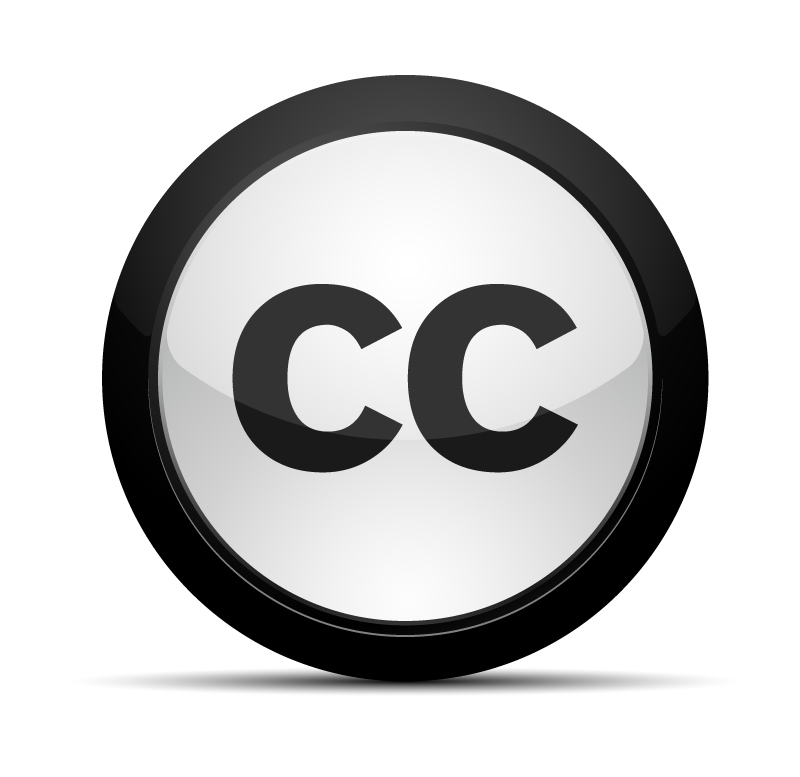
In principle, the creator of a work initially owns it, not unreasonably. But often it's a condition of the publication of the work that the creator assigns the copyright to the publisher. Most books are published on this basis: the material belongs to the publisher as recompense for bearing the cost of production, but the author is paid for his or her work through a system of advance fees during the writing process and payment of royalties following publication. (Royalties are essentially a percentage of the money a book makes from sales. The author doesn't normally start to be paid royalties until the publisher has recouped the money it originally paid as an advance.)
The copyright holder (not necessarily the author/creator) may have specifically waived or modified his or her rights. The creator of copyrightable content may be under contract that specifically reassigns copyright to someone else, such as a publisher or an employer. Sometimes this is categorized as a 'work for hire', where creative work is commissioned by another party, or done on behalf of an employer: frequently, the originator is bound by contract to assign ownership of the work to whomever pays for it. (Sometimes reassignment of copyright is automatically assumed by a publisher even though no contract is in place and no money changes hands, and that can get very messy indeed.)
The originator can also waive his or her rights by putting the content into the public domain, or allow the use of that content according to one of several types of 'Creative Commons' licences ranging from Attribution (CC BY) – where others can make almost any use of the content as long as they give due credit to its creator – to Attribution-NonCommercial-NoDerivs (CC BY-NC-ND) where the work can be shared, but can't be altered or used commercially.
So what is Copyright?
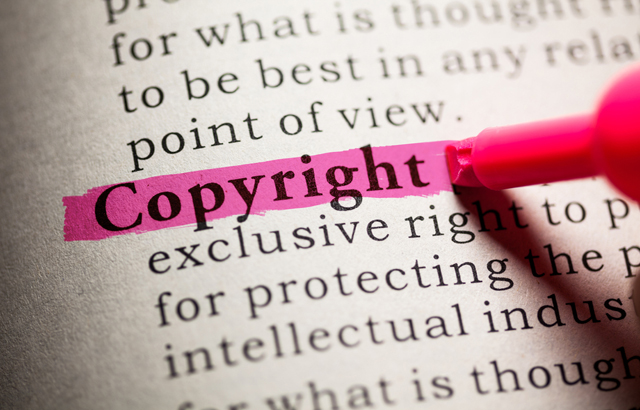
In fact, copyright law can vary quite widely from one country to another, so in principle the exact terms depend on where you actually are (as creator or as consumer). However, there is a degree of harmonization due to treaties between nations. The European Union, for example, has passed a number of directives that member nations are required to enact within their own legislation. In the US the primary basis for judgement on copyright issues is the 1976 Copyright Act.
In principle any creative work available in some recorded or notated form in most media is protected by copyright (in most jurisdictions, at any rate). I've seen it suggested that this doesn't apply to newspaper articles, but that is wishful thinking, however many scanned articles and photographs are posted to Facebook. Original material is automatically copyrighted in any country that's a signatory to the Berne Convention (see below) unless the creator specifically waives those rights.
Or the copyright may have expired. When copyright expires varies in different regions, but often 50 or 70 years after the death of the creator, but that depends on the type of content as well as the region. Also, there are circumstances under which copyright may be renewed, though things can get very complicated in such a case. 'Happy Birthday' is a particularly notorious example, a US judge having ruled only this year that Warner Music does not own its copyright. (The melody was composed as Good Morning To All in 1893, but it's only recently that a federal judge deprived Warner Bros of its claim to copyright.
Curiously, that judicial ruling seems to have derived in part from the disclosure of a songbook of 1922 that included the words and tune to Happy Birthday without a copyright notice. That's because at that time the US was signed up to the Buenos Aires Convention – which requires the author to include explicit notice that the author claims rights to his or her work and allows for the renewal of copyright according to local legislation – rather than to the 1886 Berne Convention by which the creator's copyright is automatically granted at the time of creation.
So while many people still seem to believe that work with no copyright notice is in the public domain, this is not generally the case. (Both the US and the UK are among the many nations whose legislation is now in accordance with the Berne Convention.) However, it's still not a bad idea for people generating original content to include a copyright notice in anticipation of potential copyright infringement issues in the future. Other difficulties with the copyright status of 'Happy Birthday' stem, according to a paper by Robert Brauneis – Copyright and the World’s Most Popular Song – from:
"Difficulties with proving authorship of the song, with potentially improper copyright notice upon first publication, and with renewal applications that seem only to cover particular arrangements of the song rather than the song itself."
Everybody's Doing It …
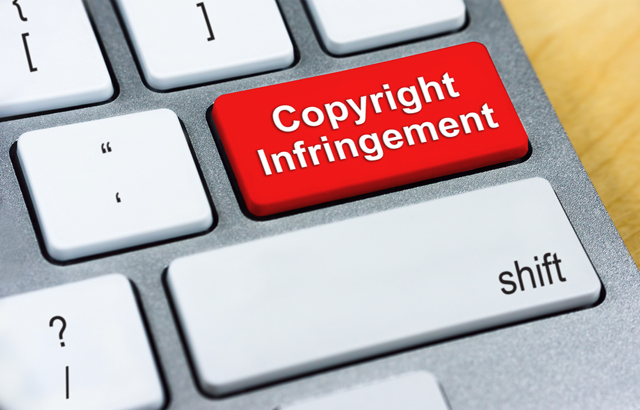
Of course people reproduce copyrighted material on the web all the time, but that doesn't mean they have a legal right to. There is such a thing as 'fair use' (in the UK we tend to call it 'fair dealing' but it's not always safe to assume that fair dealing as defined in the 1988 Copyright Designs and Patents Act is the same as the US definition).
It's not always possible to predefine fair use with any precision: it means, basically, that you may be able to quote an article (for instance), but you can't normally reproduce the whole thing without the copyright holder's permission. One of the tests applied by courts in cases of dispute over 'fair use' is whether the disputed work is 'transformative': does it add expression and meaning, or is just a copy.
However, what percentage of the original content can be quoted while remaining 'fair use' has to be reviewed case by case: there is no standard formula. But in principle, the less you copy, the easier it is to plead 'fair use' because it's then clear that you're creating something new rather than simply reproducing someone else's material.
Fair use
Generally speaking, simply copying copyrighted material is not 'fair use'. Some of the most common grounds for establishing what is 'fair use' may include:
- Inclusion of quotes in a news report that summarizes a press release, article, presentation or other source. Since copyright in articles and papers generally protects the way in which they're expressed rather than the underlying ideas, summarizing an article is, within reason, okay (plagiarizing ideas is a different issue).
- Inclusion of short passages in academic or technical articles and papers is normally acceptable, for example from other articles that support the writer's hypothesis or provide further illustration and information regarding points made. In some circumstances, there may be issues arising from the inclusion of unpublished material.
- Inclusion of quoted material for purposes of commentary, review or criticism.
- If you're using copyrighted material in a work that will be in direct competition with the material you're borrowing, that's unlikely to be considered 'fair use'.
It's easier to plead fair use where there is no commercial advantage to the copier, but as YouTube makes clear, non-commercial use is not automatically 'fair' (and nor does giving the creator credit). There may also be grounds for pleading 'fair use' where the information disclosed is in the public interest, even in a commercial context, but again there is no guarantee.
In fact, pleading of 'fair use' can lead to some results that might surprise you. As one of the authors and copyright holders of Viruses Revealed – copyright reverted to us some years ago – I don't recall ever authorizing Google to digitize the book. However, when I did a quick search for some technical issue or other, I was mildly surprised to be referred to one of my own books. While you can't retrieve the whole book from Google Books because of its status as a copyrighted work, it's certainly accessible enough to search for specific terms.
(This isn't a plug: I don't have copies to sell …)
The US Appeals Court affirmed long ago that Google's unauthorized digitizing, creation of a search mechanism, and display of limited extracts from such a work are 'non-infringing fair uses'.
Copyright, Plagiarism and Fair Use
Reproducing copyrighted material without authorization and passing it off as your own without credit to the real author is plagiarism. But reproducing copyright material while acknowledging the author, while it isn't plagiarism, is not in itself fair use: if it doesn't meet the fair use criteria and you aren't authorized to reproduce it, it's probably a breach of copyright.
And adding a note saying that you don't intend to infringe copyright doesn't help your case if you have, in fact, infringed copyright, any more than not intending to exceed a speed limit excuses you when you are caught speeding. (Your excuse might be accepted in either case, but it doesn't mean you haven't done something you shouldn't.) Nor does a note saying that you're reproducing material for non-profit and/or educational purposes, necessarily, though if you really are, that may tip the balance towards 'fair use' where there is a dispute.
According to the 1976 Copyright Act in the US, 'fair use' can be justified on the grounds of criticism, comment, news reporting, teaching, scholarship or research, considering factors including whether it's used for commercial or for non-profit educational purpose; the nature of the work itself; how much of the copyrighted work has been re-used and how 'substantially' it represents the copyrighted content ; and how the new content affects the value and marketability of the copyrighted work. (For instance, you can't reproduce substantial portions of a work with the intention of having your work supersede it.)
Fair Use and Social Media
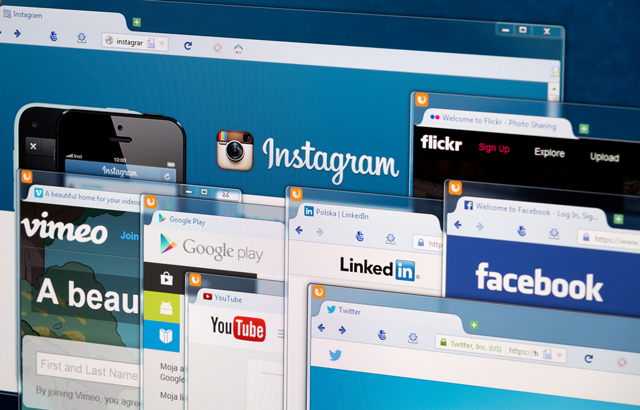
But what do the social media sites themselves say about copyright? As regards their own use of material posted by subscribers, you might get the impression from some sources that you may as well put your life into an envelope and post it to social media sites with a note saying "Go ahead, do what you like with it".
In fact, the self-defined rights of Facebook, to take a much-targeted example, are by no means absolute.
Sorry, I'm going to quote myself:
"The essence of the Facebook service is to facilitate on your behalf the sharing of the content you choose to share, subject to the control it allows you over where and to whom it is shared. That licence agreement is what Facebook deems necessary to enable it to provide that service. And it is an agreement: if you’re using the service, you’ve agreed to it, even if you haven’t read it. That’s how contractual obligation works."
Facebook put it like this back in 2012:
"Anyone who uses Facebook owns and controls the content and information they post, as stated in our terms. They control how that content and information is shared. That is our policy, and it always has been."
When it comes to possible infringement of Intellectual Property Rights (IPR) in posts made by users of Facebook, the onus is clearly on them and not on the company
Facebook does have a page that talks about copyright in general terms, and is quite clear that it won't offer you individual legal advice beyond "if you're not sure, don't post it on Facebook", and that it will act on complaints about copyright infringement.
YouTube
Often a YouTube video is posted with a disclaimer to the effect that 'I didn't make this and I don't own it.' But such a disclaimer giving credit to the creator and/or copyright owner doesn't in itself authorize the poster to reproduce video content as a whole or in part, as YouTube itself specifically advises. (See also YouTube's Copyright Centre).
It doesn't matter if you aren't making money from it, or how many other posters do the same thing. Buying a CD or an MP3 doesn't make you the owner of the copyright, only of that individual copy, with no automatic entitlement to copy or redistribute it. Nor does recording it yourself (for example, from a TV broadcast using a video recorder). Of course, the same applies in principle to other media such as magazines and books.
YouTube's terms of use can be found here. If you're thinking of posting anything there to which you don't own the copyright, you should certainly read it. You should probably also read the company's take on Fair Use and in particular the section on Fair Use Myths.
Other Services
I won't attempt to cover all the social media services that exist currently, but here are a number of relevant links:
- Twitter Copyright Policy
- LinkedIn Copyright Policy
- Google's policies range as widely as its services, but you could start here or here.
- Myspace Copyright FAQs
- Soundcloud on copyright infringement
In general:
- These services will disclaim any suggestion that they're offering legal advice. (So do I!)
- However keen they are to make use of copyrighted material (and other data) associated with their subscribers, when it comes to a subscriber posting disputed material, they will be very responsive to complaints.
- Protection such services may claim in terms of licensing for music, for example, is unlikely to be extended to a subscriber. If you get it wrong, you're on your own.
What isn't Copyright?
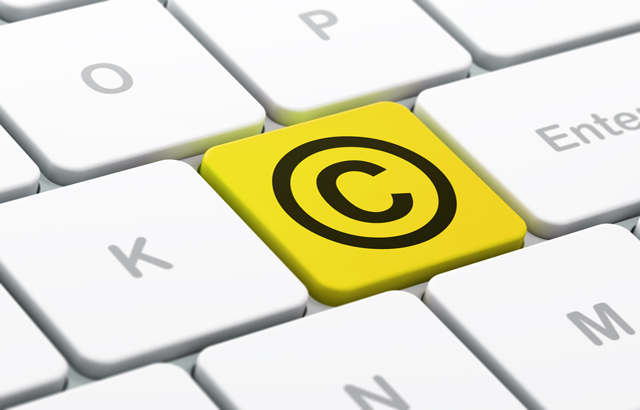
But what can't be copyrighted at all? That may vary from one jurisdiction to another, but in general:It's the expression of ideas that is copyrighted, not the ideas or concepts themselves. However, this refers to expression in terms of actual text, or original graphic content, original musical content and so on, not incidental features such as fonts and colouring.
- Material that hasn't been recorded or notated in some form isn't protected by copyright
- Works that don't contain any original material, such as lists or representations of data taken from common sources, public documents for instance.
- In general, slogans and titles.
However, that doesn't mean that all those things are necessarily unprotected. For example, while an idea might not be copyrighted, it could be patented, and that's a can of worms you really don't want to open if you don't need to. (Maybe I'll talk about that another time.)
There are other legal booby-traps that might catch the unwary in re-using other people's original material. You may be aware that some elements of copyrightable material are not in themselves copyrightable, including titles, names and slogans. However, such elements may be protected by other means such as trademarks: for example, a well-known slogan or catchphrase associated with and trademarked by Michael Buffer, who has successfully sued people who've used that slogan without permission.
Derivative Works
A derivative work – that is, one based on or derived from a work that already exists – can become copyrightable in its own right by incorporating (some or all of) the existing work and adding new and copyrightable content. In principle, however, only the owner of the original work can create the derived work (or authorize someone else to do so).
Conclusion
A huge quantity of copyrighted material is posted on social media by people who haven't sought out the copyright holder to ask permission. Sometimes this isn't feasible at all, and often no harm or offence is meant, but the creators or copyright owners (not necessarily the same persons or entities) may be deprived of legitimate income, as well as the right to decide what use is made of the content that they own. You may feel that it doesn't matter because "it's only Facebook" but the copyright holder may disagree. It's not as though there isn't also plenty of freely and legitimately distributable content around. It's worth remembering that there's also a huge quantity of material that's in the public domain or using a form of licence that easily covers informal or non-commercial use.
If you're not sure whether it's permitted to share content, it's usually quite permissible to share a publicly-accessible link, though there are one or two things you might want to be careful about, even when it comes to a passing reference on a social media site.
- You might want to avoid saying anything libellous about the linked content.
- If the content is dubious, it might still cause offence, or contravene the terms of use for the social media site you're using. You may, like many others, never have looked at those terms of use, but by using the site, you're normally considered to have accepted those terms.
If you're now wondering about the use of external links in a more formal context, here's a useful article that gives a brief overview of The Legalities of Linking as it affects the web designer.
No copyright notice doesn't mean no copyright
Any creative work available in some recorded/notated form in any media is normally protected by copyright unless the copyright term has expired or the copyright holder has chosen to waive or to modify the terms for making use of the work. The absence of an explicit copyright notice doesn't mean the work isn't copyrighted: in any country that's signed up to the Berne Convention, the act of creating a copyrightable work automatically establishes copyright unless the creator/copyright owner specifically waives or modifies those rights.
Fair Use
'Fair use' or 'fair dealing' does offer limited rights to 3rd parties to make use of copyrighted material. For instance:
- The inclusion of quotes or short passages in a news report, a technical article, or an academic paper.
- Inclusion of quoted material for purposes of commentary, review or criticism.
- Parody
There is no convenient formula for estimating how much quoted material constitutes fair use. Less is definitely safer.
Non-commercial use is not automatically 'fair use'.
Passing off someone else's work as your own is plagiarism. However, giving credit to the author is not enough to establish 'fair use' if you don't have permission to use it.
Owning the content and owning the copyright
Buying video or audio content on removable media or from an online resource such as iTunes doesn't make you the owner of the copyright, or entitle you to copy or redistribute it. Nor does recording it yourself (for example using a video recorder). The same principle applies to other media such as magazines and books.
Copyright isn't the only way of protecting Intellectual Property (IP)
There are modes of expression that can't be copyrighted. Essentially, you copyright the expression of your ideas and concepts rather than the ideas themselves. However, that doesn't mean that ideas and even slogans and titles aren't protected by other legal mechanisms, notably patents and trademarks. The World Intellectual Property Organization web site is a good starting point for finding out more about IP and IP protection.
Further Information
- A brief intro to copyright
- A broader view from Wikipedia
- Australian Copyright
- Benedict O' Mahoney's Copyright Website
- Brad Templeton explains 10 Big Myths about Copyright
- Canadian Copyright
- General information from the UK Copyright Service
- The US Copyright Office's guide to Copyright Basics
- Fair Use
- The UK Copyright Service on Fair Useand on Using the Work of Others
- Copyright in Derivative Works and Compilations
- A more business oriented view: Cause for Concern: Intellectual Property Rights and Social Media




